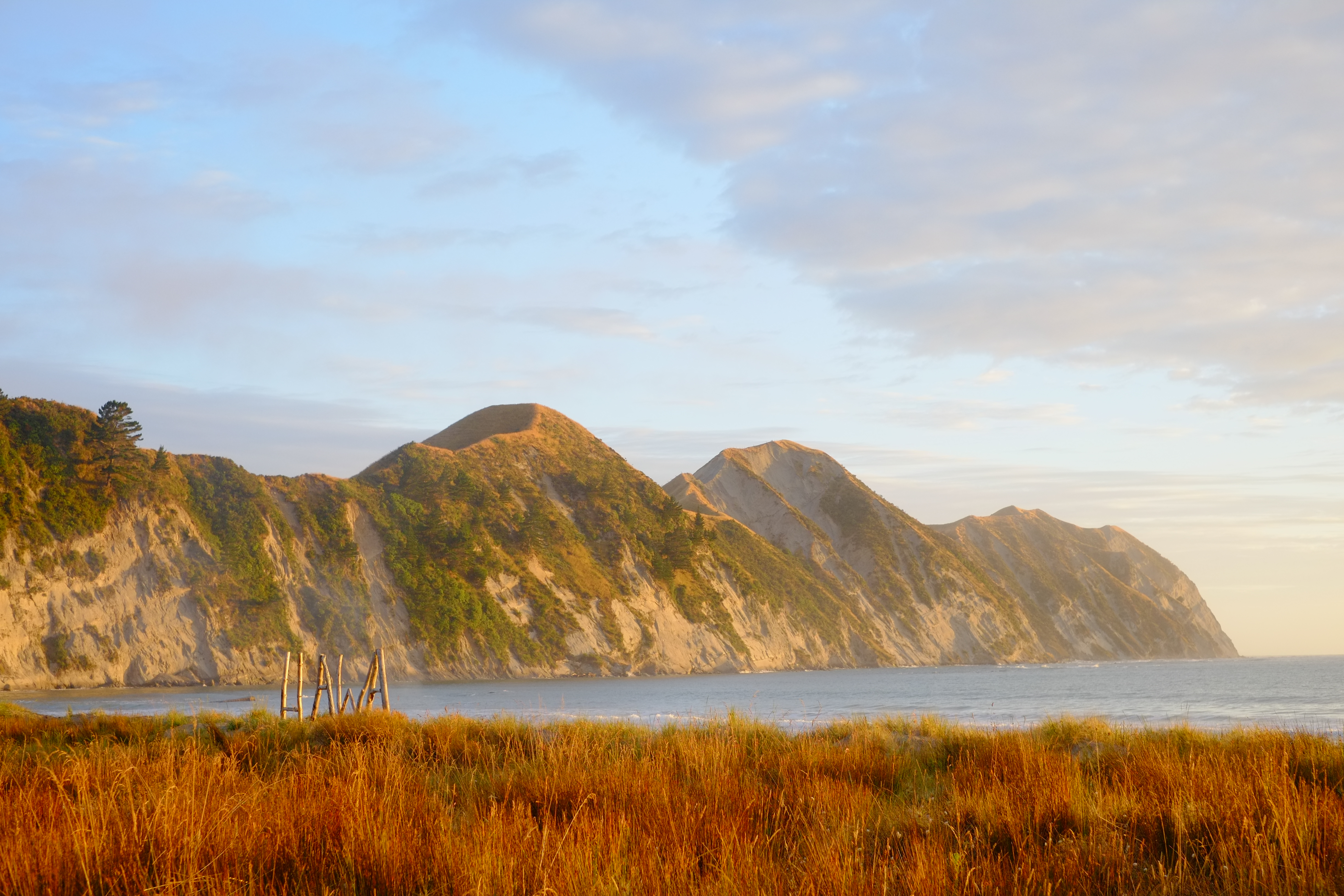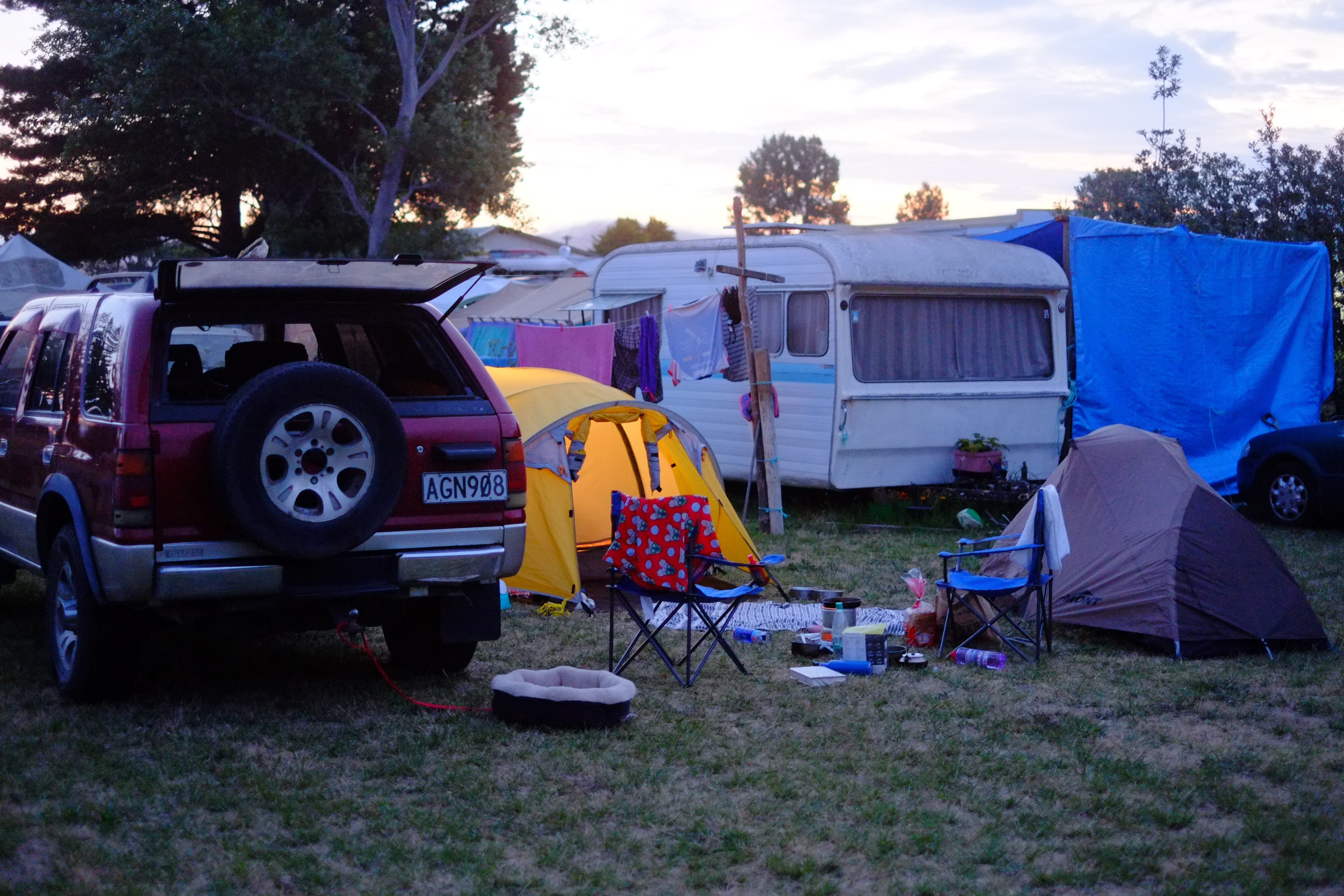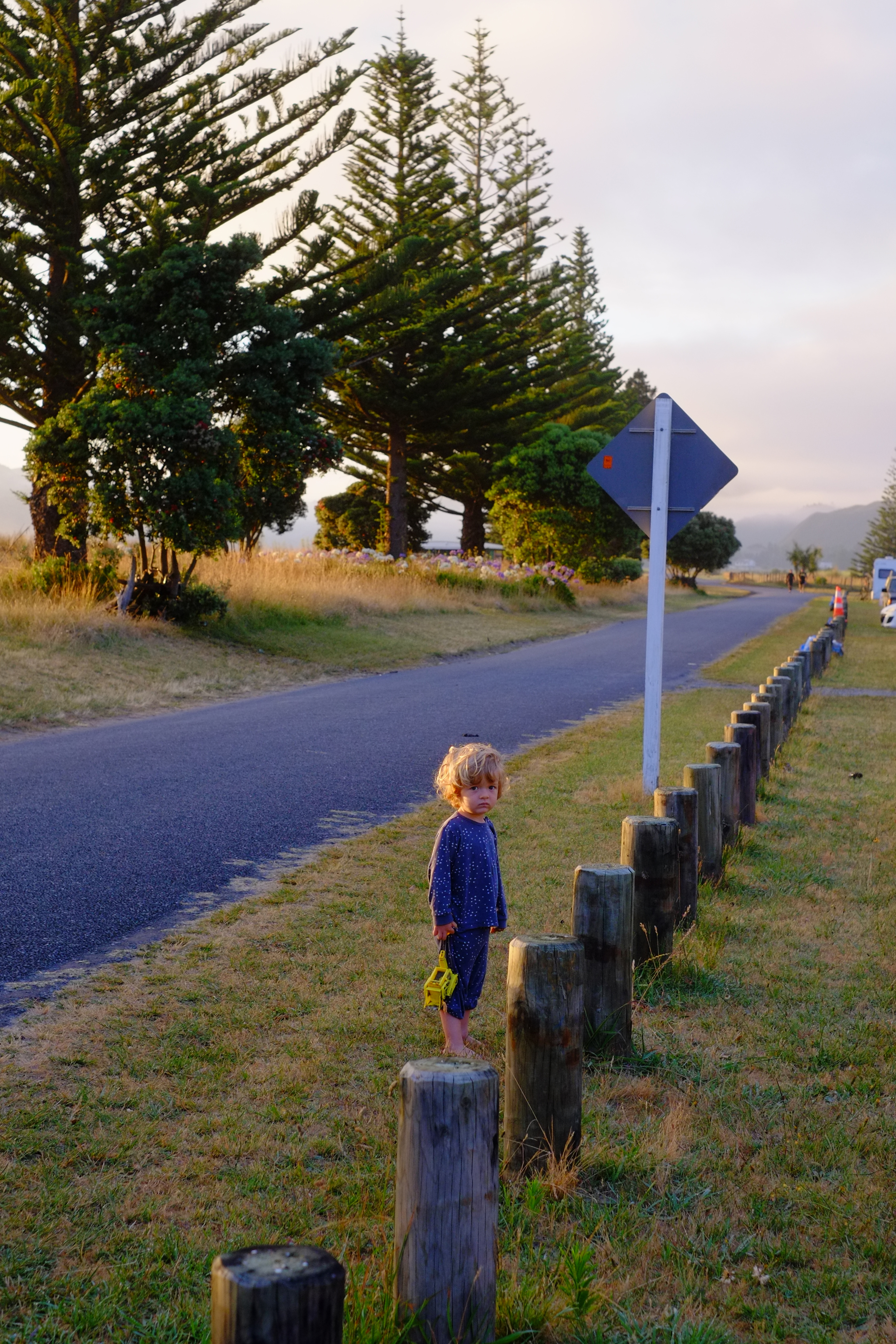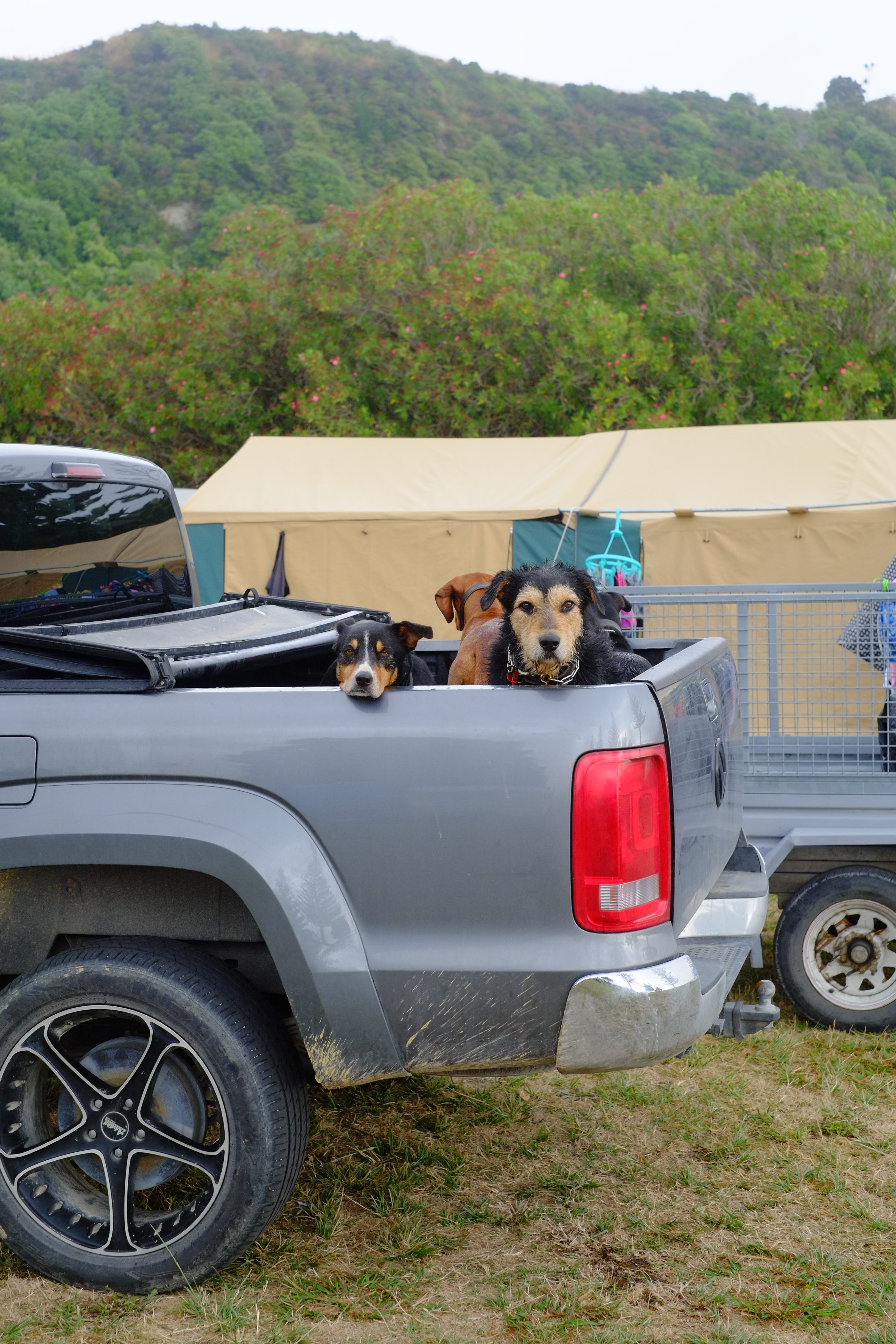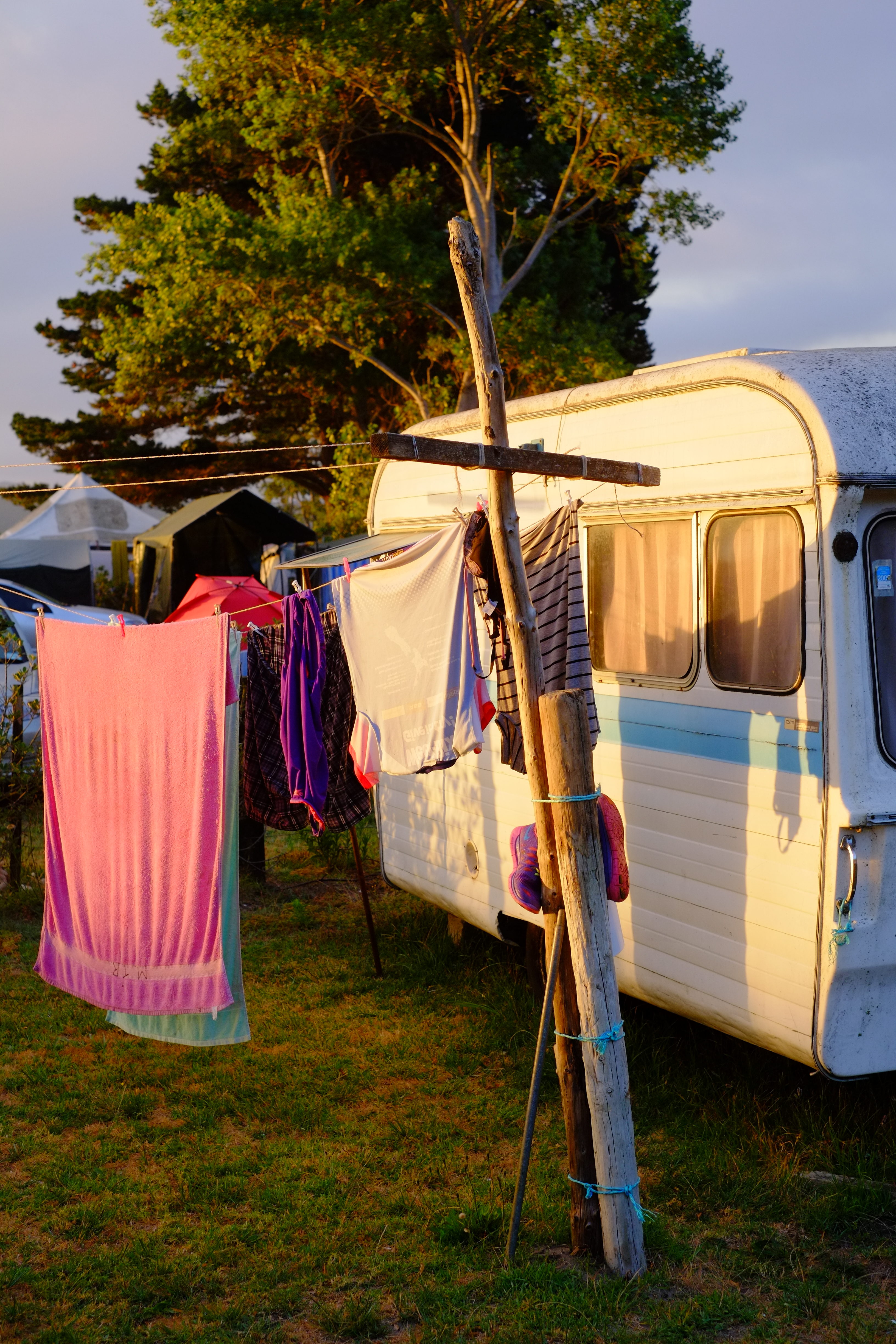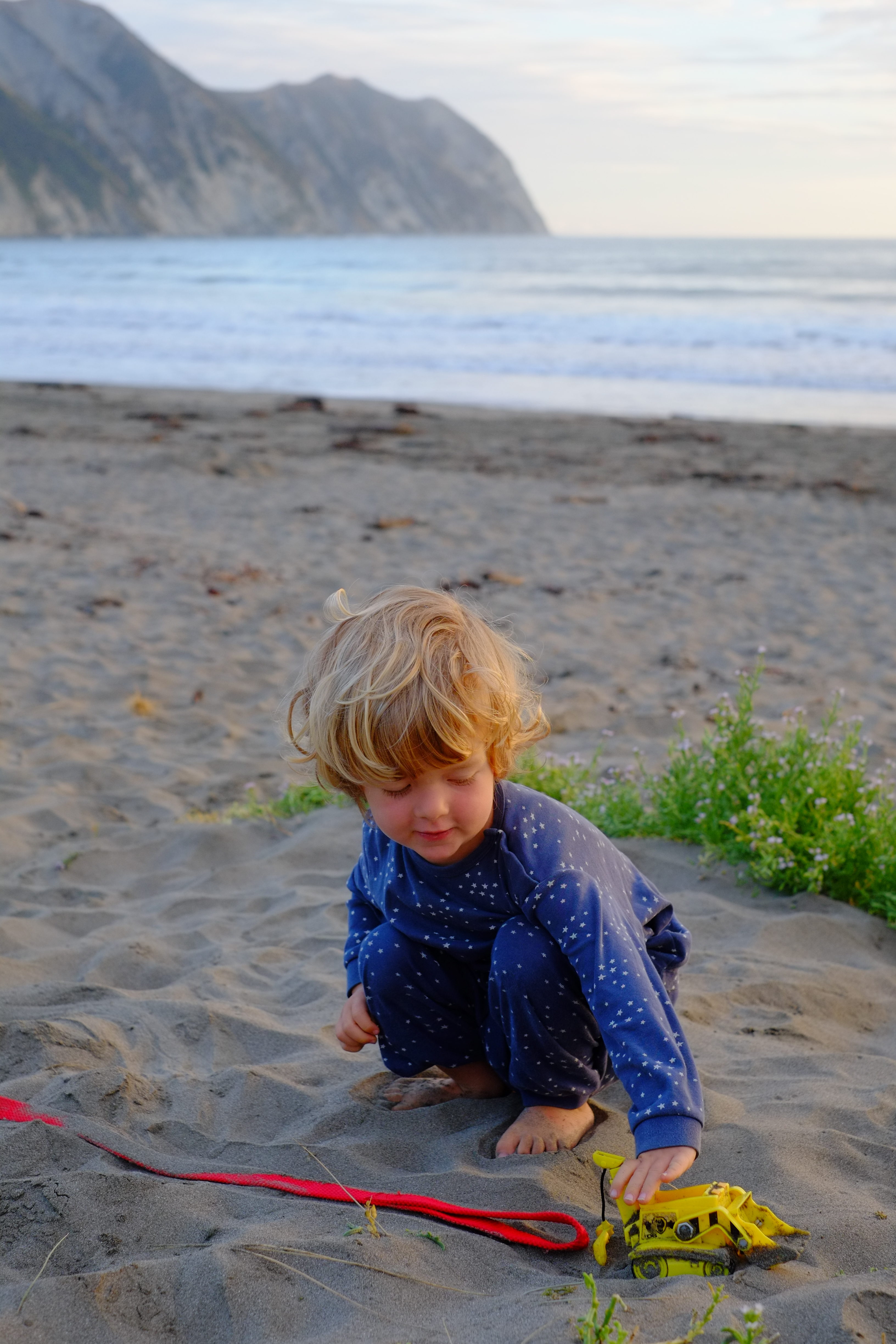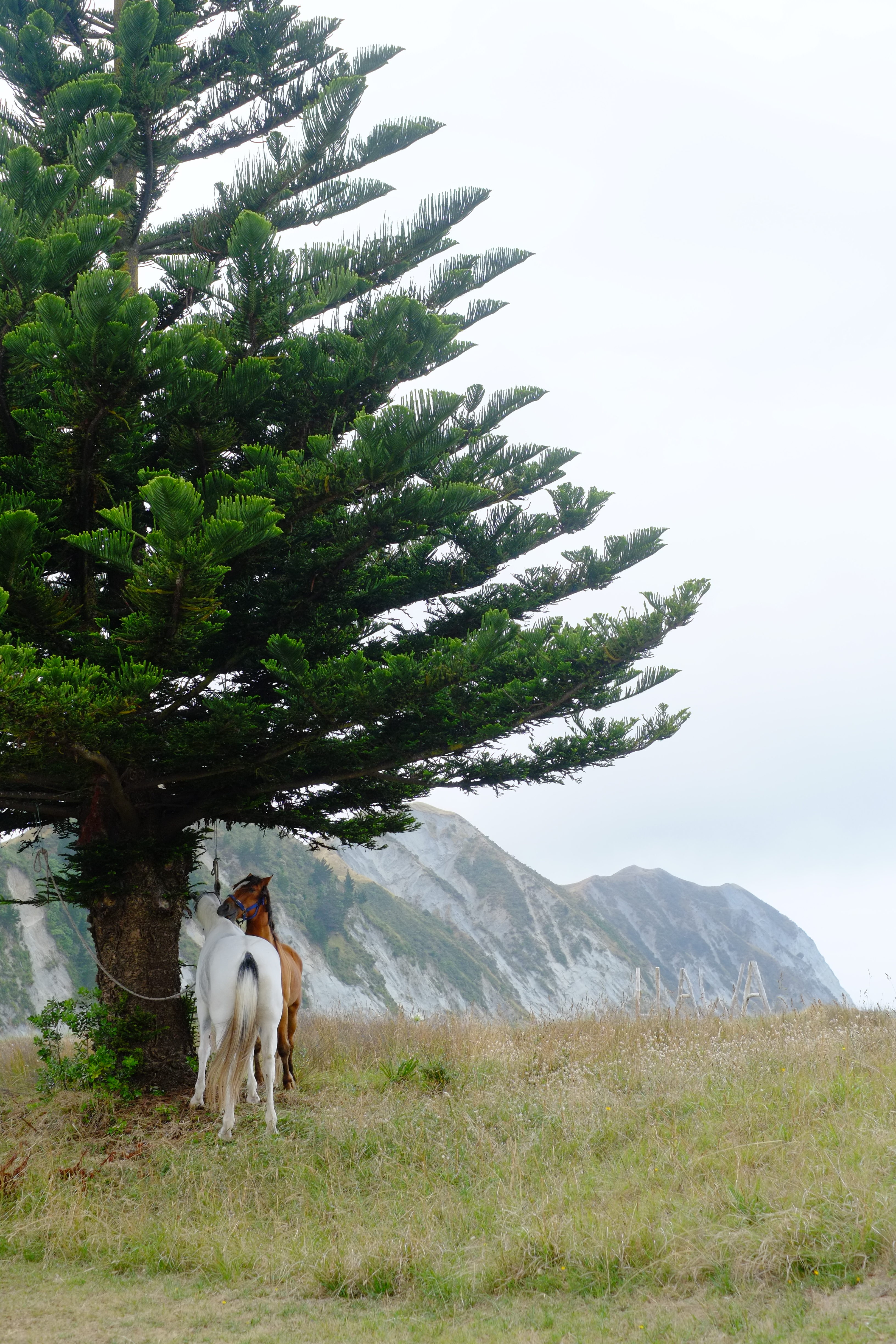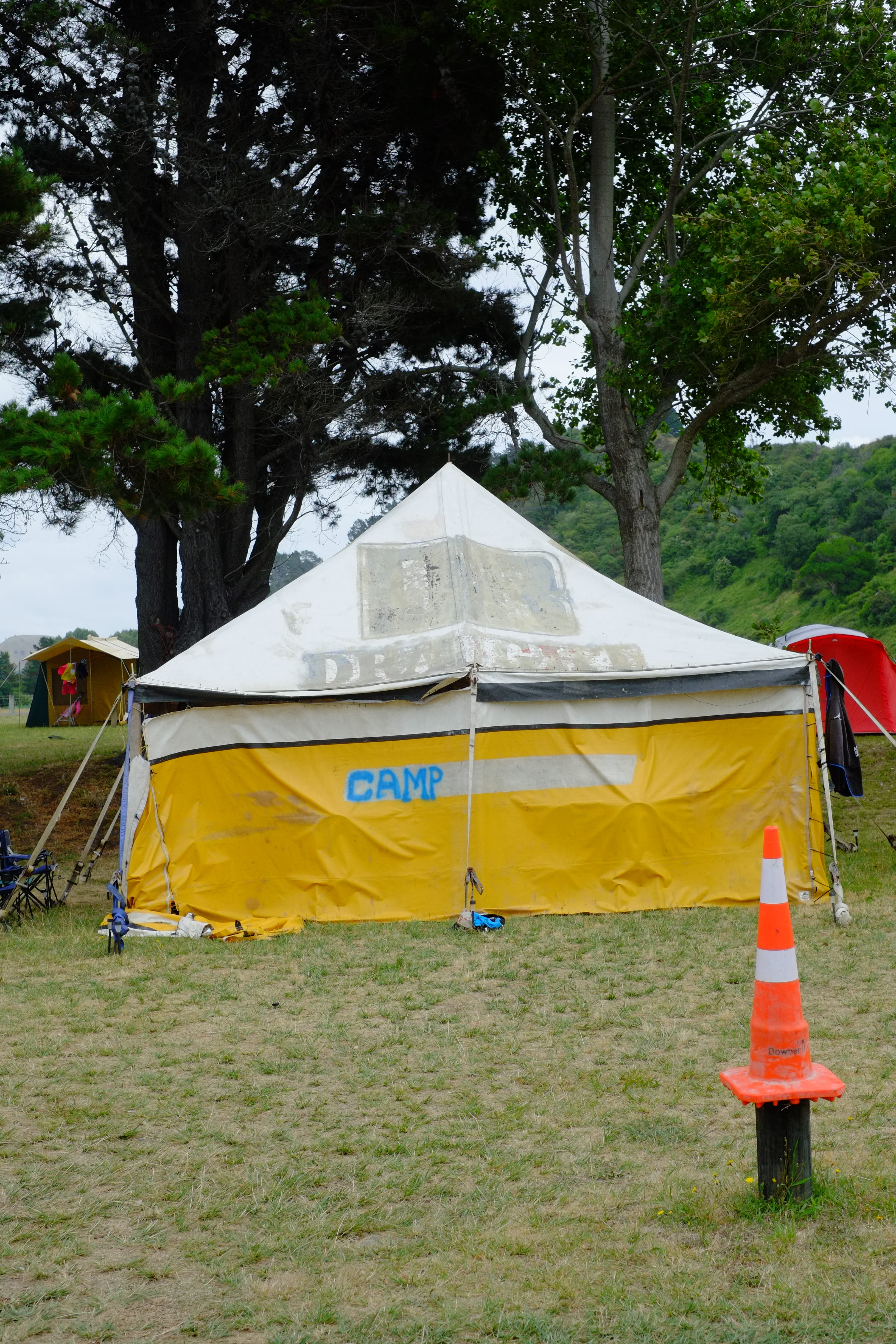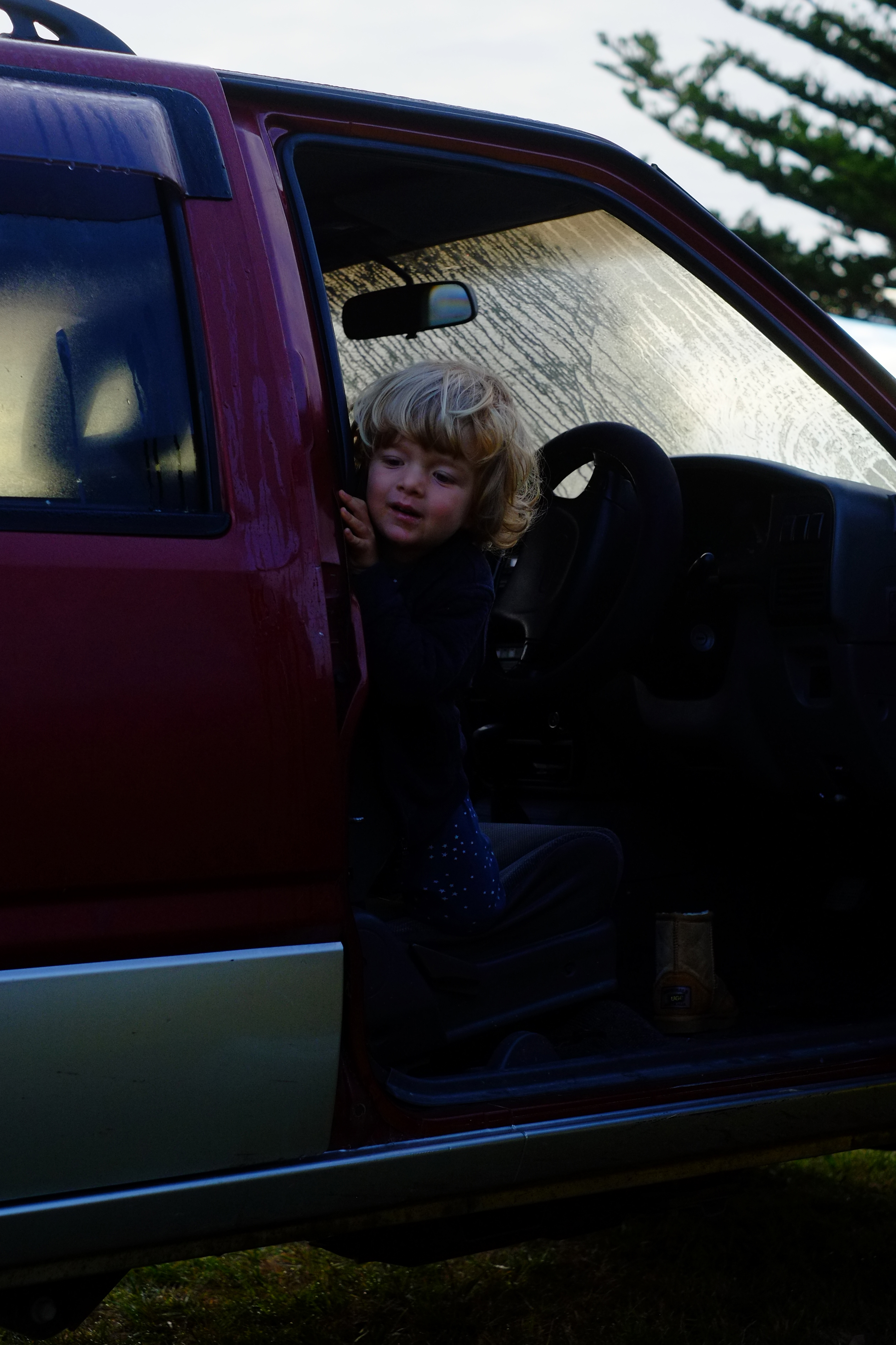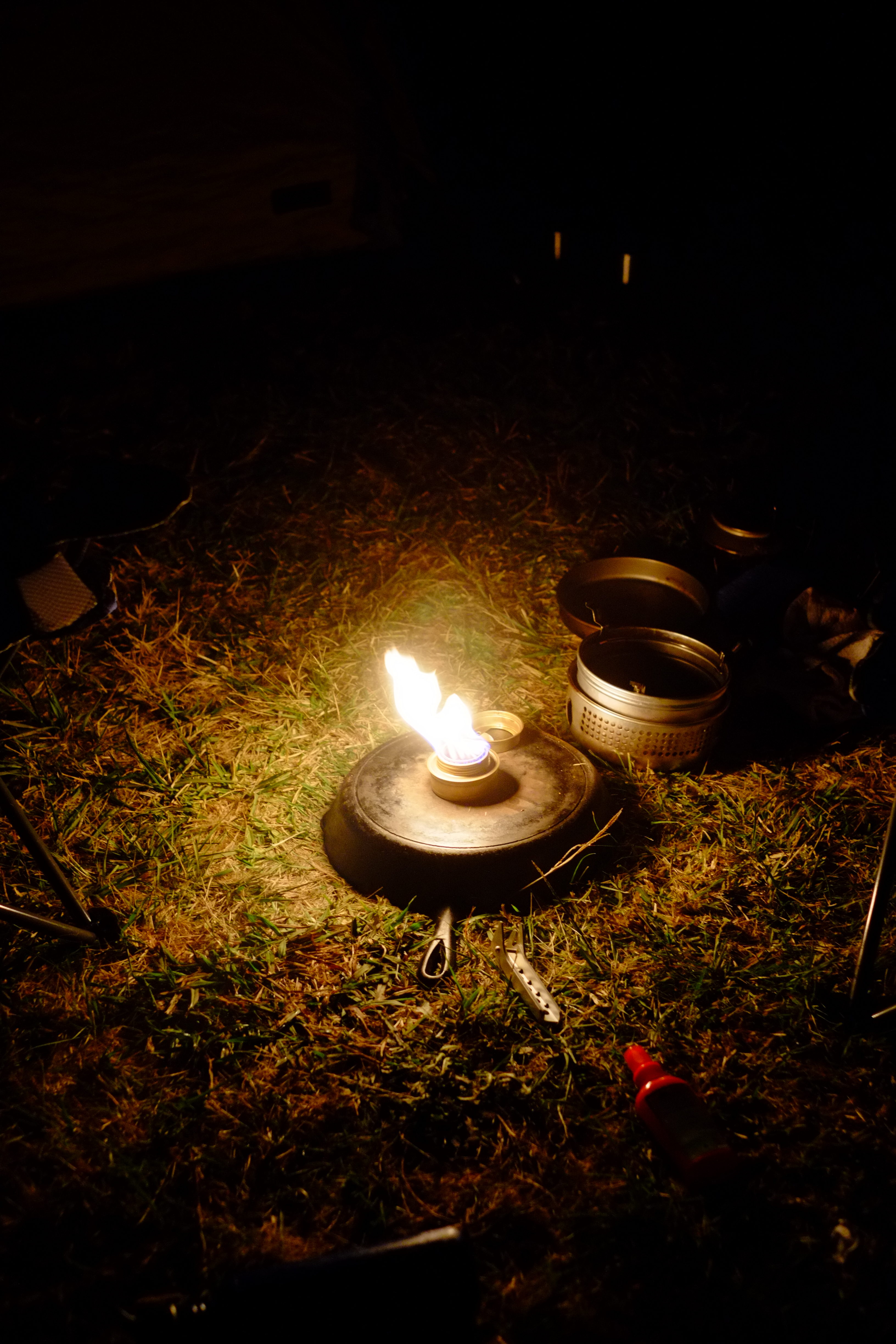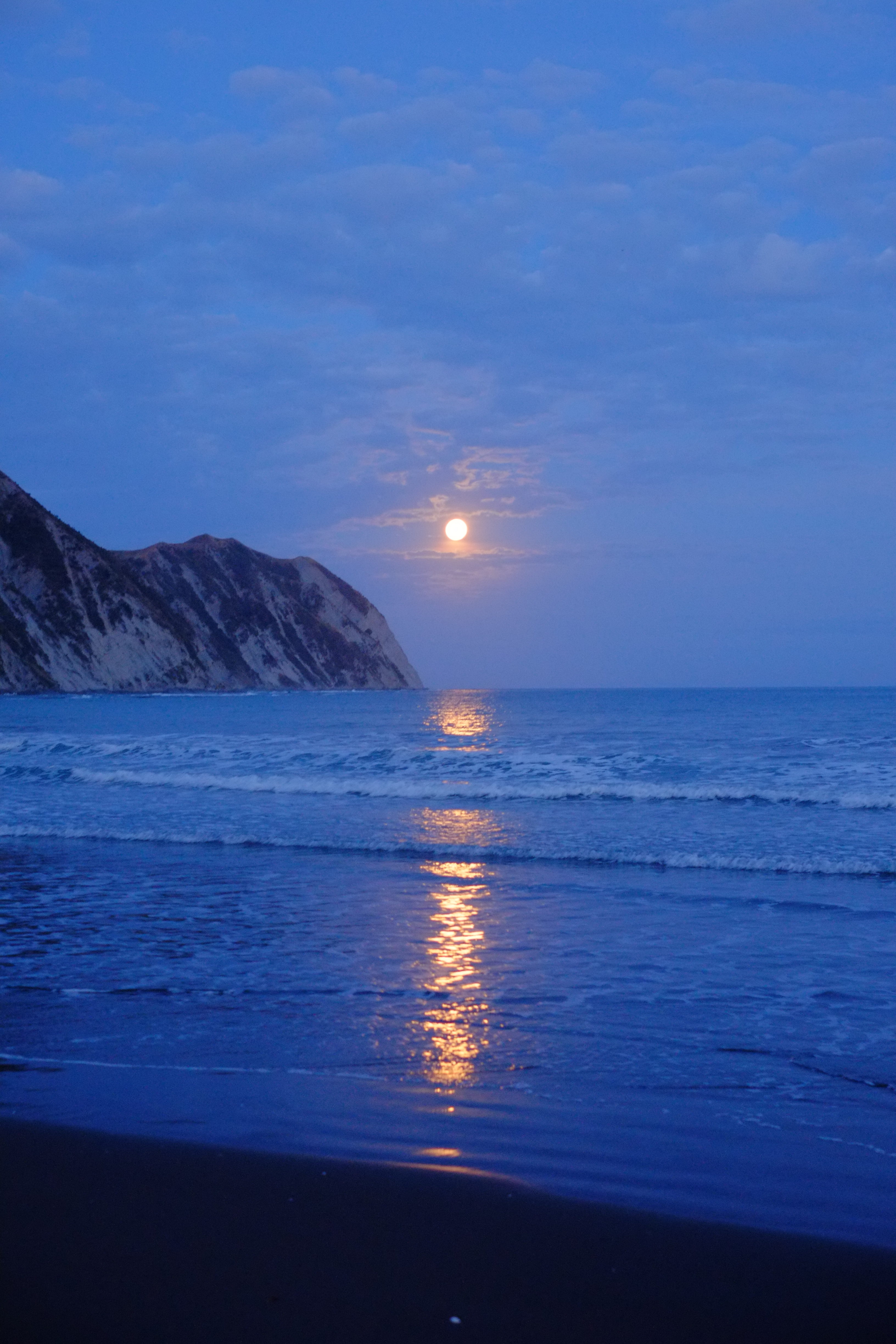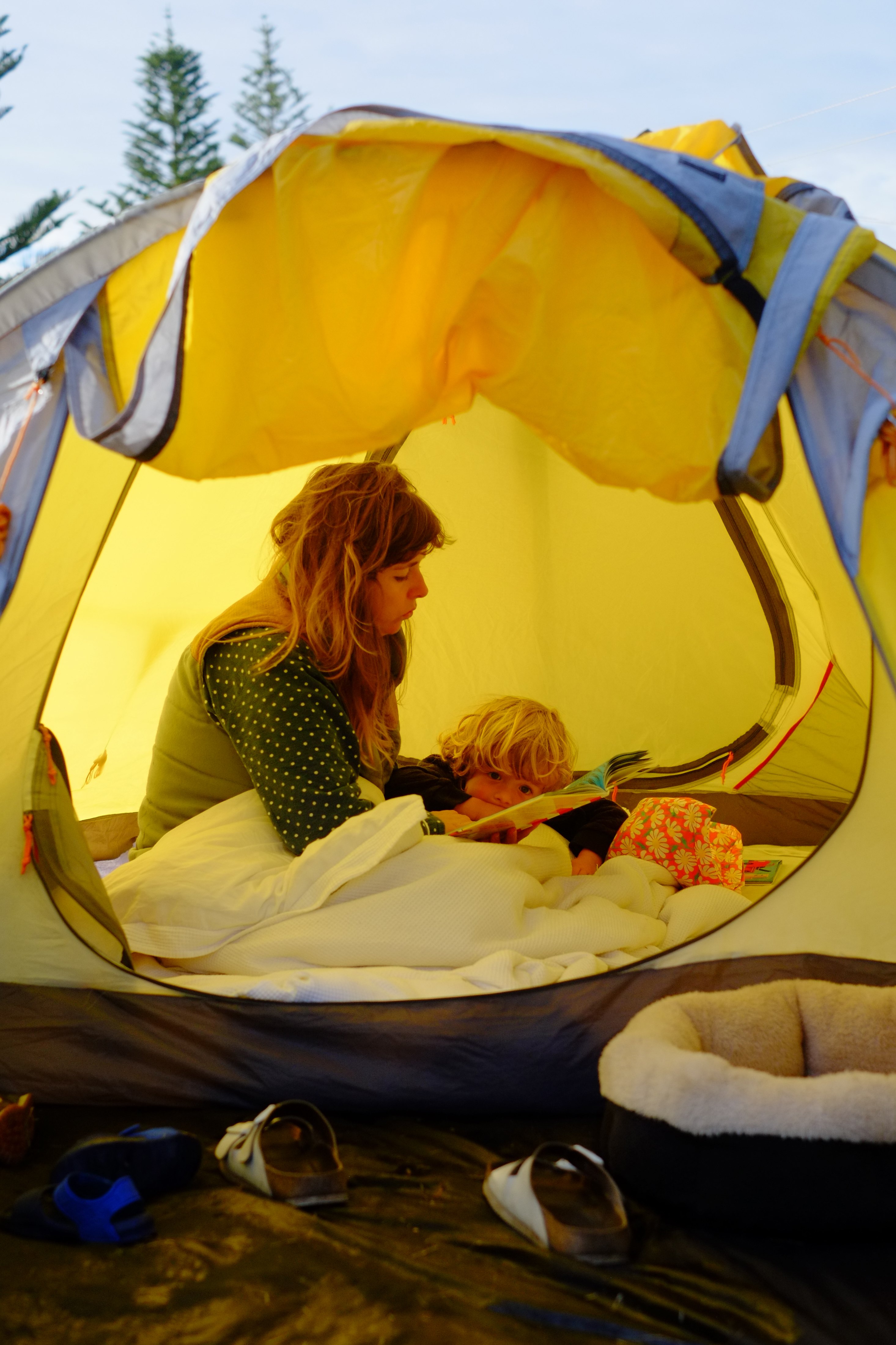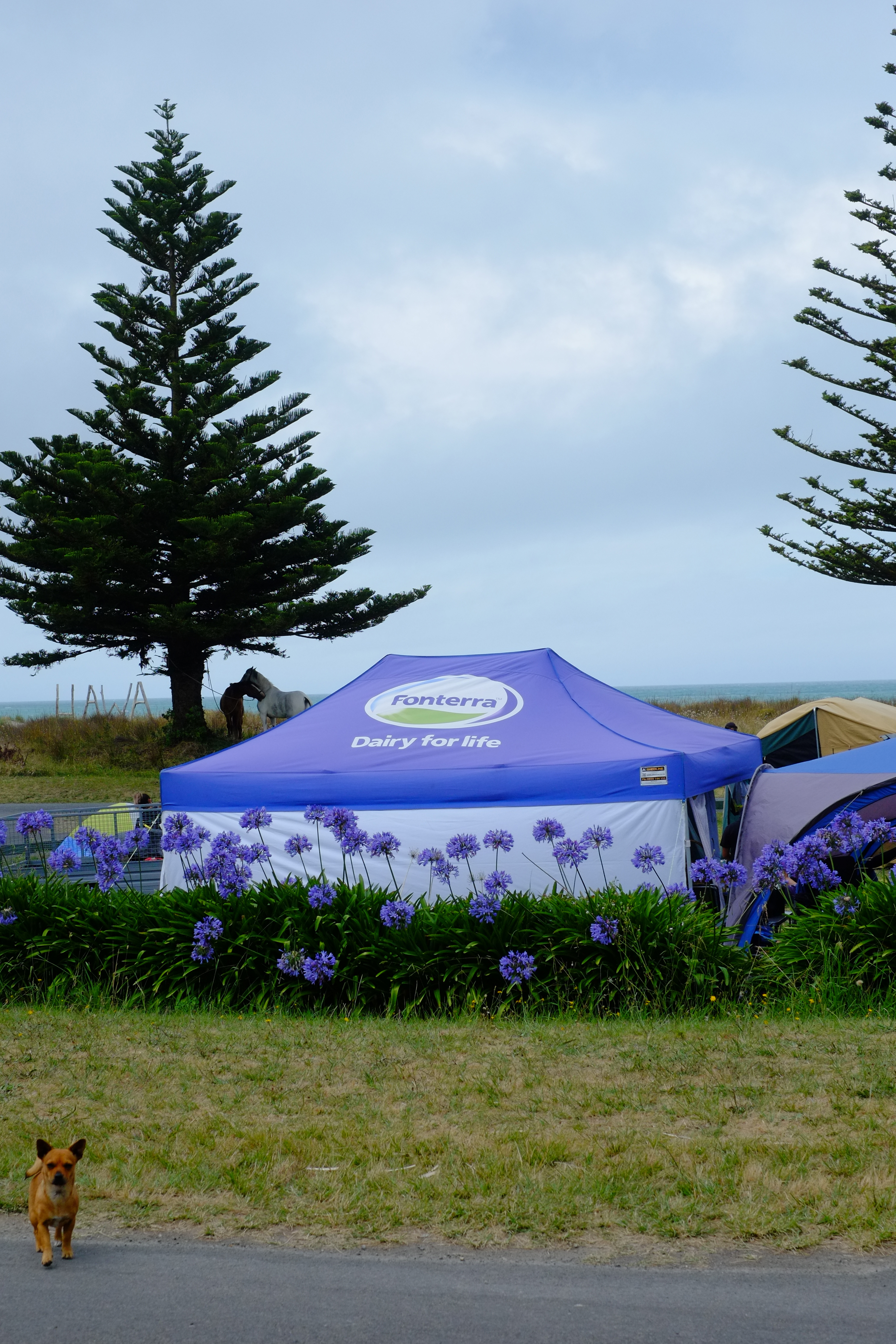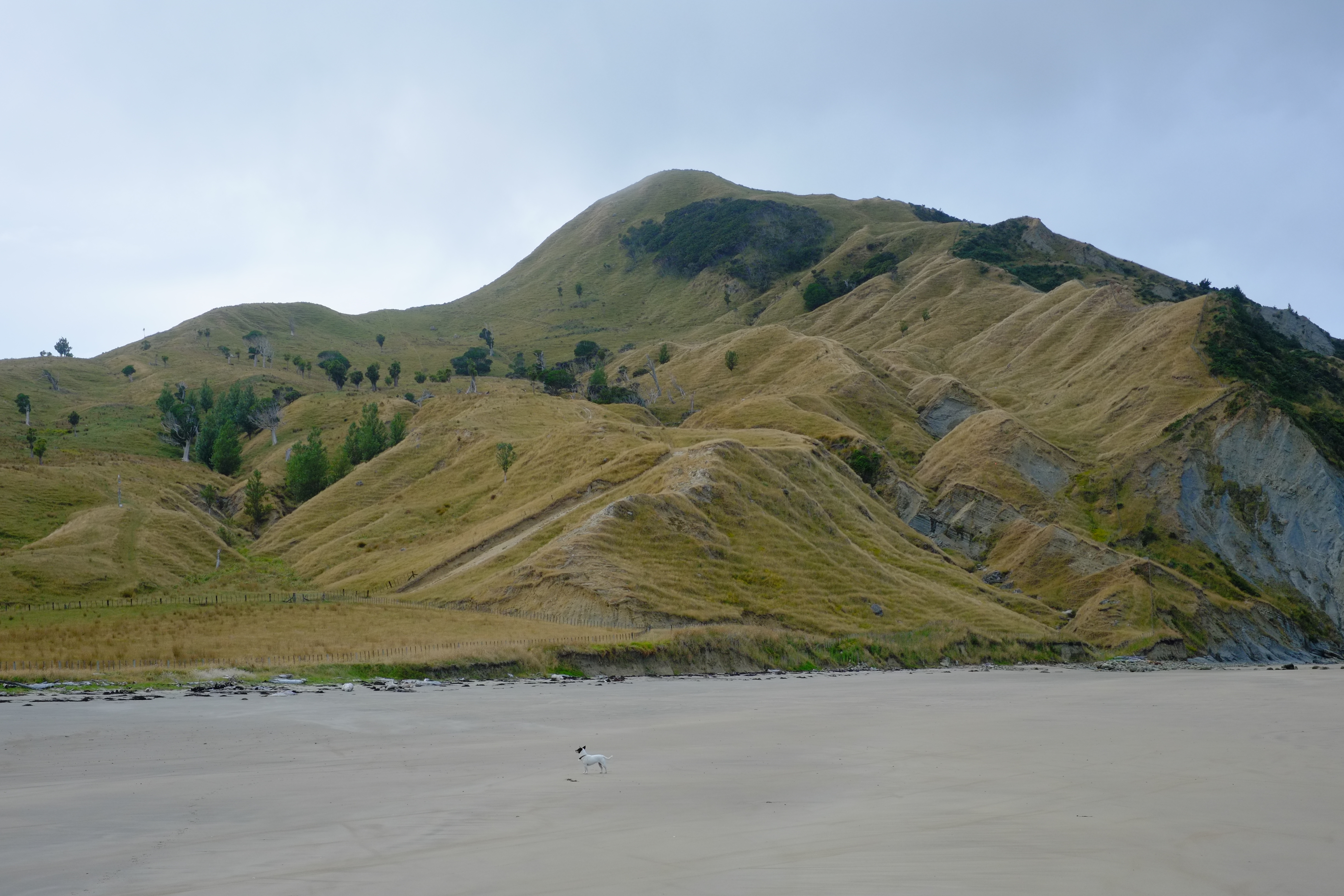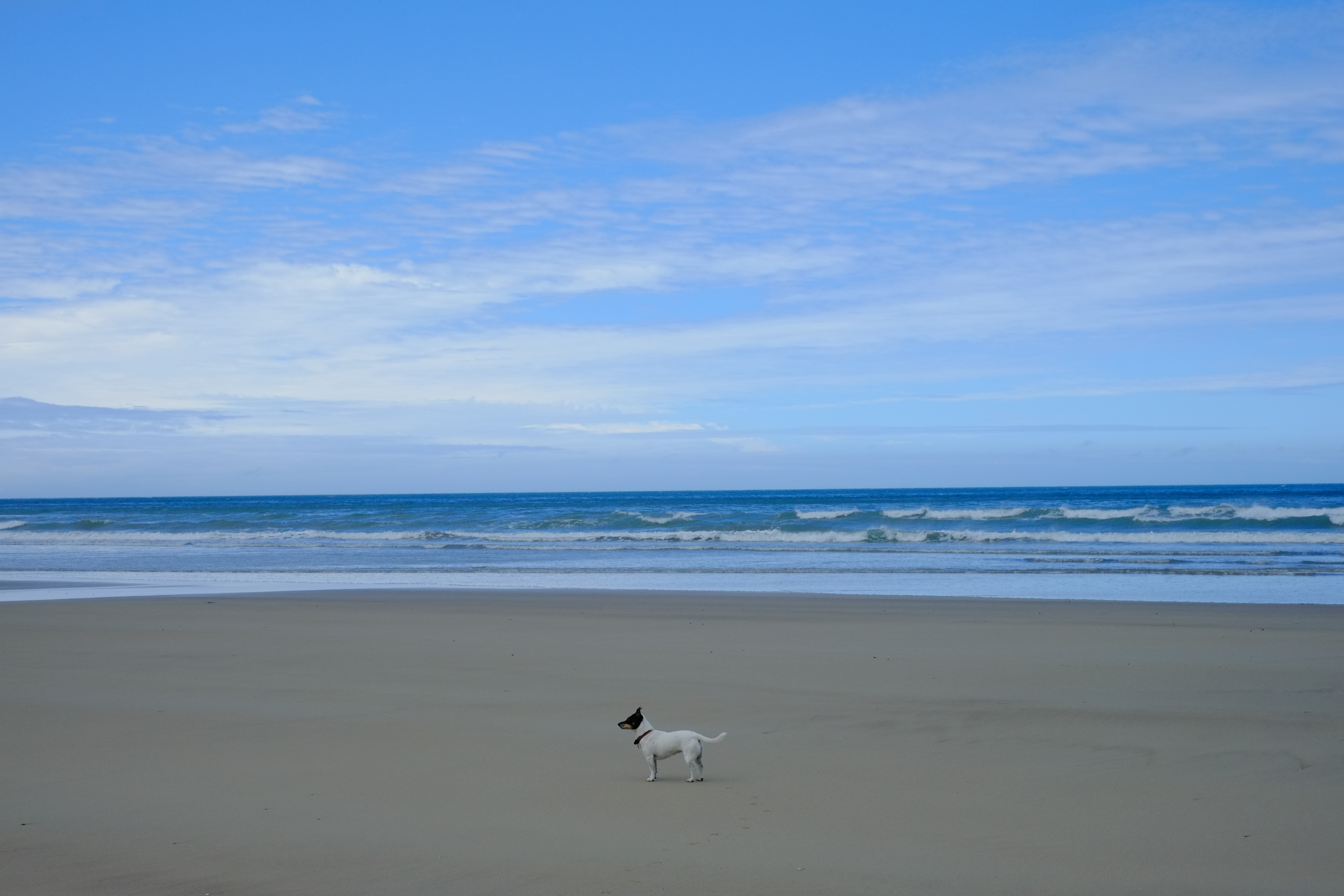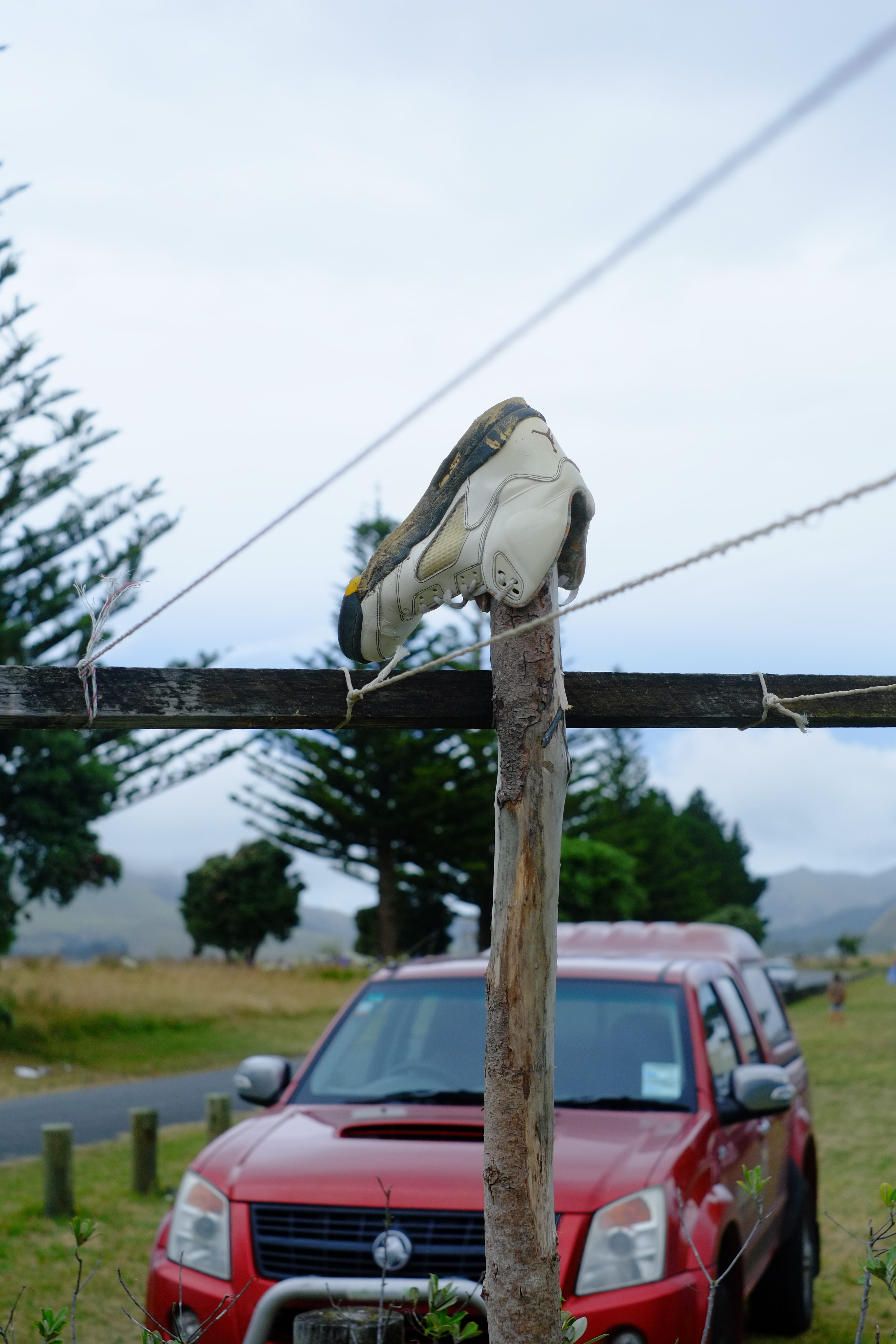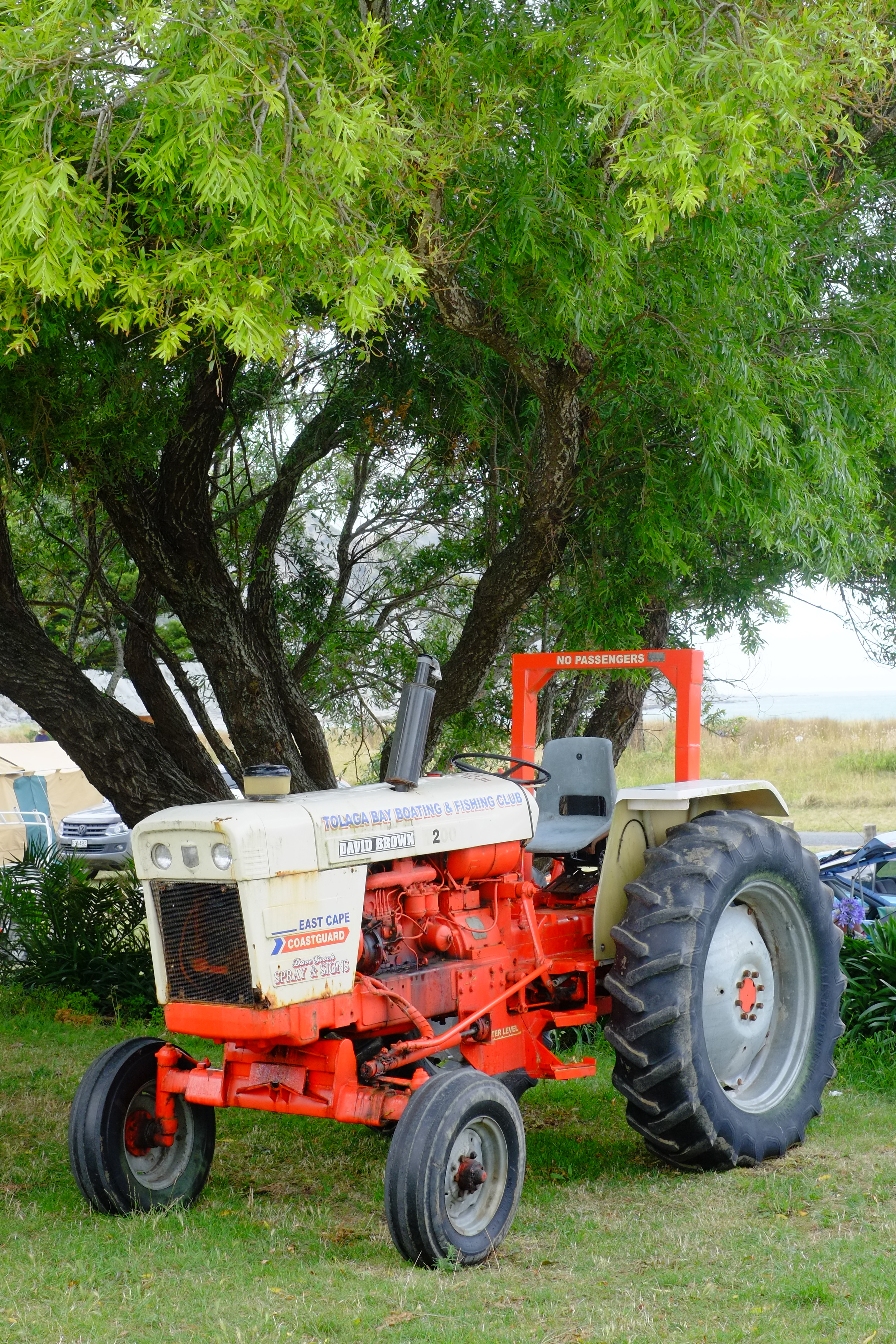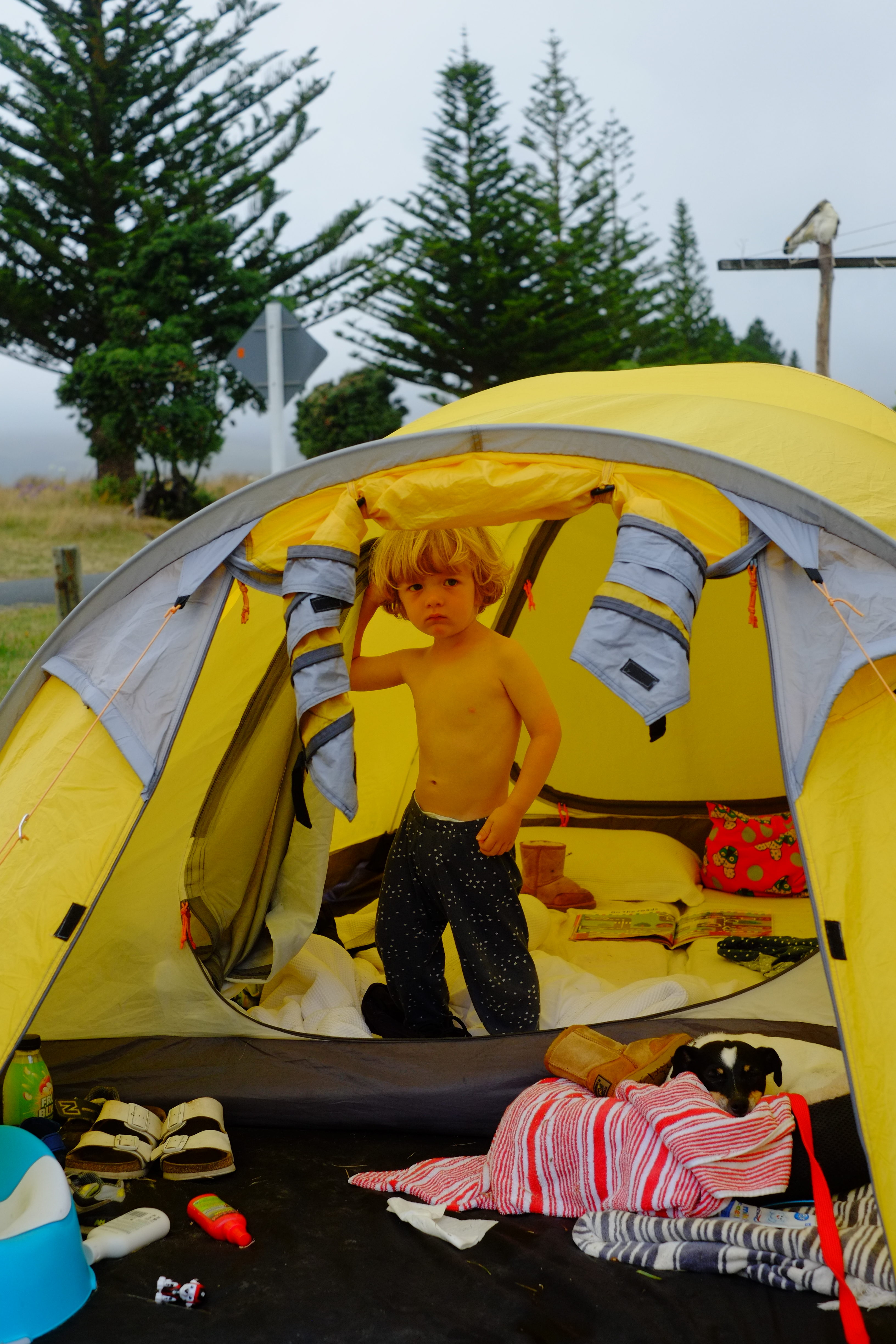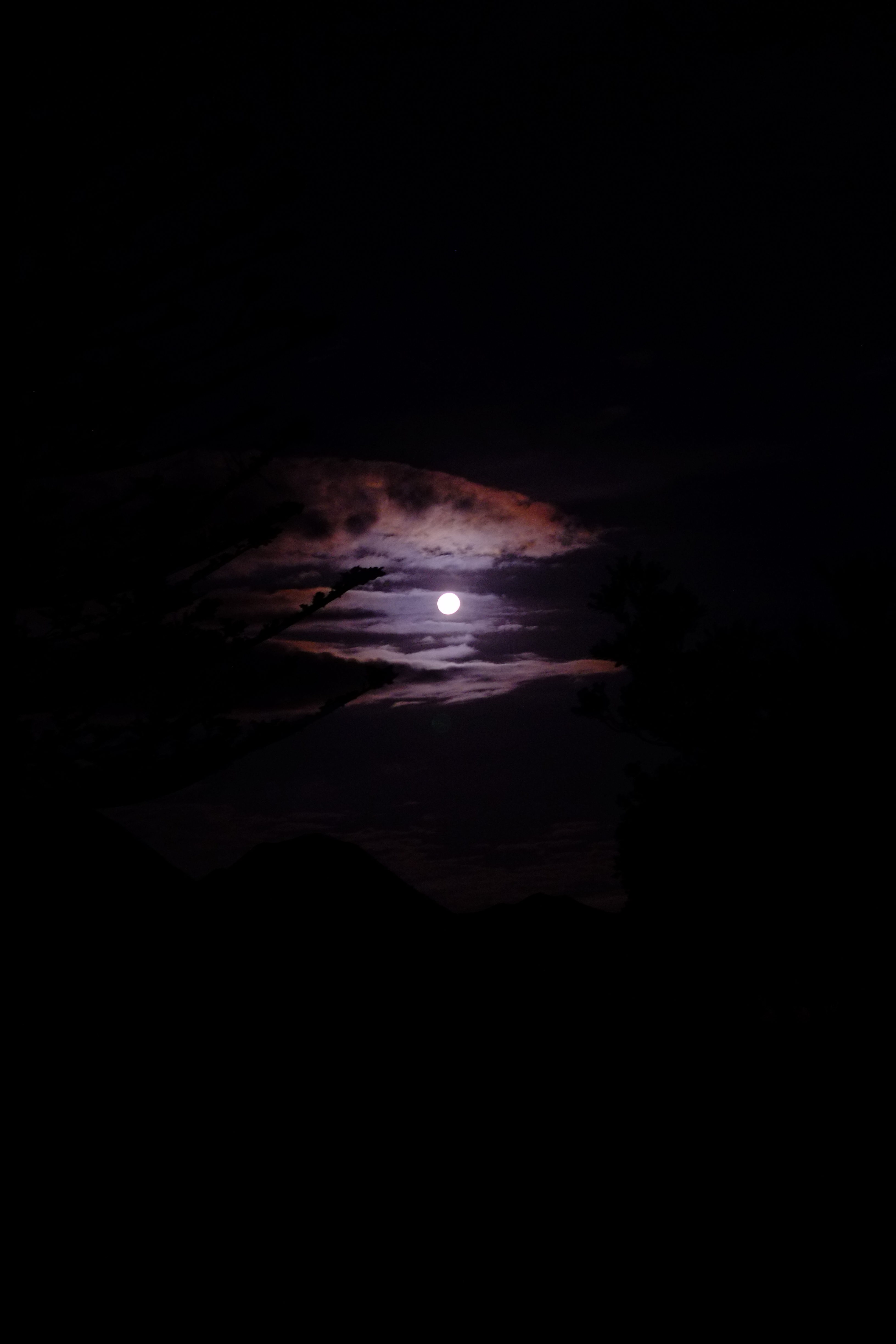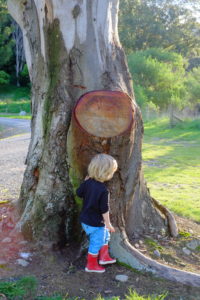Tolaga Bay
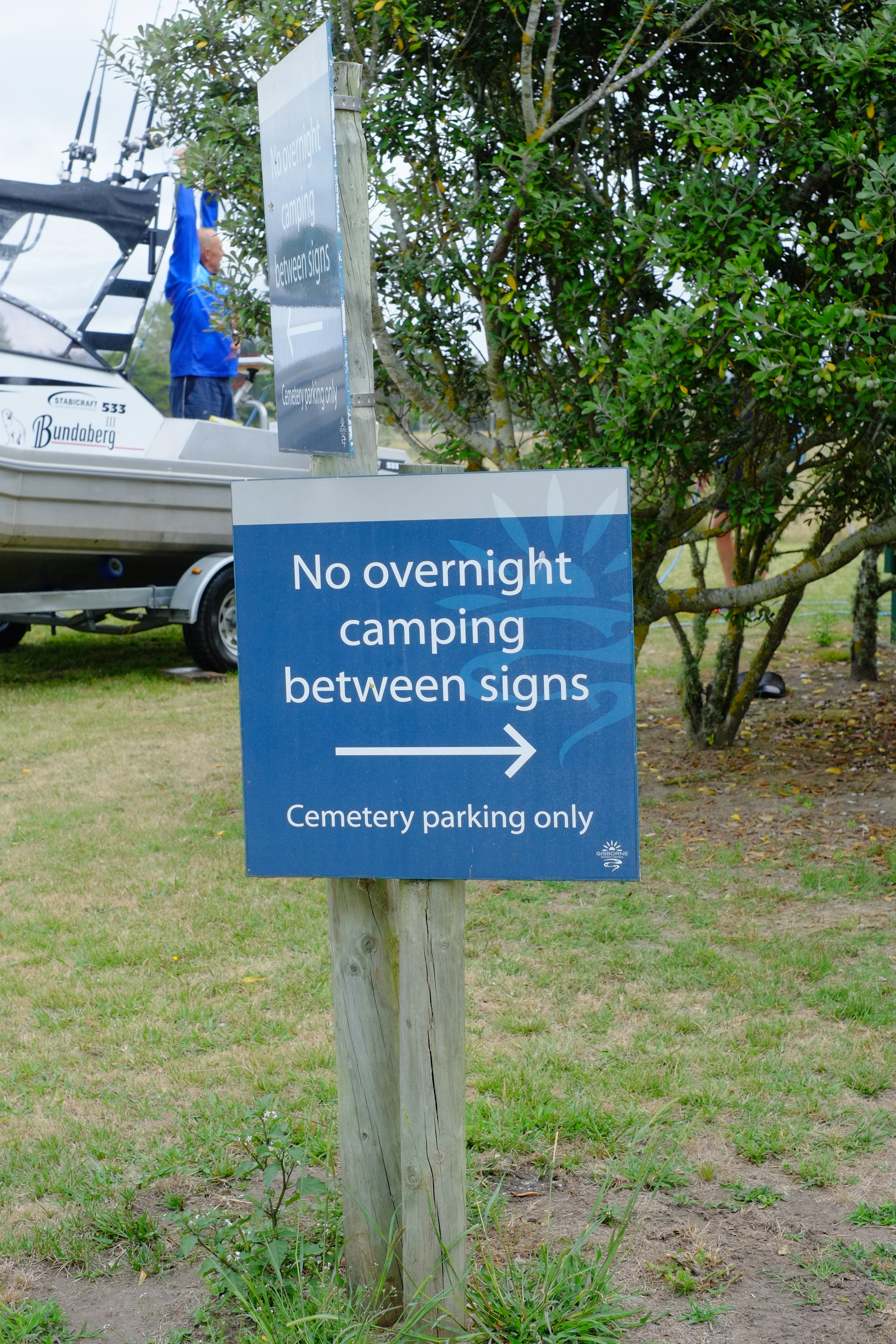
I had driven grumpily the whole day. It all started at the playground in Wairoa, where Fred had fallen and squealed in terror as his skin fried on the gleaming hot metal floor of a merry-go-round and I just stood, useless, waiting for the stupid thing to rotate the whole way around so I could run into the entrance and scoop his little body up, then look around hopelessly for a tap or a toilet or Rosie or the car. Then after Rosie had hurried back from the shops after my panicking phone call, and Fred was fine, I had angrily squeezed the little sauce thing on my pie and eaten it, and rolled around the terrible skatepark, and been teased by the children (‘do a kickflip!’) and slipped over onto my sore elbow and hobbled back and requested to get out of there.
But as we rolled into the late afternoon Tolaga Bay camp ground, my mood instantly lifted. It’s a magical place. We found a spot right where we had camped last time on that mythical roadtrip around the East Cape when we were simply young childless visitors from Melbourne, under a pohutukawa tree against the fence of the cemetery.
‘Is it weird to camp right here?’ I asked.
‘I don’t know. Should we look around a bit more?’ asked Rosie.
We sat there, engine running, staring at the graves.
‘Me get out?’ said Fred.
While the others headed to the beach via the ice-cream van, I began on the tents. As I fell into the system of clipping and threading and velcroing, I started feeling more happy and relaxed than I could remember feeling. I noticed I was whistling.
Just as I had finished the framework of the first tent, a squinting, dreadlocked woman walked up cradling a tiny brown dog.
‘Dunno if you’re staying here more than one night,’ she said.
‘Oh, yeah…’ I said, confused.
‘It’s just that you’re not allowed to camp along here,’ she said, her dog staring at me solemnly.
‘Really?’ I said. I’d wondered why this stretch of the campsite was empty, and had decided it was because everyone was spooked out by all the dead human bodies just over the fence.
‘They’ll just get you to move when they come round tomorrow,’ she said. ‘That’s why I asked if you’re staying more than one night.’
‘Thanks so much,’ I said.
‘Read the signs if you don’t believe me,’ she said, pointing towards a sign we had blundered straight past. ‘It’s just so the families can visit their dead relatives.’
‘Of course, how stupid of me,’ I said. Did she have relatives buried there? Was she a ghost? ‘I didn’t want to be disrespectful. I’ll move straight away.’
‘You can stay the night if you want. I just thought I’d tell you in case you wanted to stay longer.’
‘No, thanks for telling me. It’s lucky I hadn’t put up my tent yet,’ I said with raised eyebrows, gesturing toward my tent. She didn’t laugh, and her and her dog considered me grimly.
‘There are plenty of other good spots,’ she said. ‘But you don’t have to move if you don’t want to.’
‘No, I’ll move right now,’ I said.
‘Up to you. Like I said, I just wanted to let you know,’ she said, walking off, the dog eyeing me suspiciously over her shoulder.
‘Thanks!’ I called out after her.
I walked down the rise to a perfect spot – surrounded by other campers and lacking a pohutukawa tree, but closer to the beach and flat. Then I wondered if it was actually a bad spot, and pulled out my phone to call Rosie. Then I stopped and put it back. Then I pulled it out again. Then I walked back to the car and drove around the campsite slowly, judging all the spots, meeting the eyes of the campers as they willed me to drive on and leave them in peace. Eventually, I drove into the spot I had originally spotted and parked the car. I walked up the rise, picked up the tent and gently carried it to its new home.
